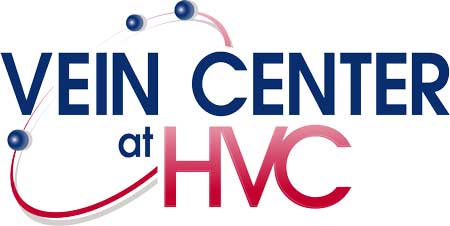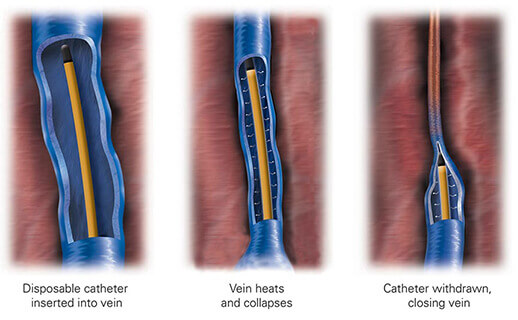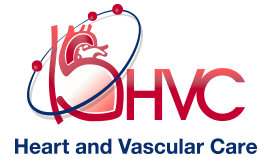Endovascular Radiofrequency Ablation
This relatively new technique has made varicose vein stripping obsolete. The purpose of the procedure is to correct the underlying “leaky” refluxing saphenous vein that is causing the visible bulging varicose veins.
Alpharetta Endovascular Radiofrequency Ablation

This catheter-based technology eliminates the need for general anesthesia and can treat varicose veins and chronic venous insufficiency with less time, less bruising, and overall faster recovery. Originally developed to treat heart problems, RF ablation has expanded to the treatment of vein issues as well. As a fast and minimally invasive option, the treatment utilizes radiofrequency energy to precisely and effectively treat patients suffering from Chronic Venous Insufficiency (CVI). The specialists at Heart and Vascular Care specialize in using RF ablation technology to properly treat your needs. Heart and Vascular Care has been recognized for offering high-quality outpatient vein treatment by the Accreditation Association for Ambulatory Health Care (AAAHC).
How It Works

RF ablation uses radio-energy to heat a leaking or refluxing vein. A catheter is inserted into the vein near the area the doctor is working, and the needle is fed through the catheter. Radio-energy is used to close 7-cm lengths of the vein at a time in 20-second intervals. The advantage of RF ablation is that the heat delivered is uniform and consistent.
This procedure is a office based procedure done under local anesthesia. A small incision is made below the knee and a catheter is inserted under guidance of ultrasound. The RF catheter is fed through and the heat energy is safely used to close the vein (A). The heat causes the collagen on the vein walls to contract and collapse the veins, sealing them (B).The blood is rerouted to healthy blood vessels and the sealed vein is reabsorbed into the body. (C)
Typically this procedure takes 15-30 minutes. The patient’s leg is wrapped with a large dressing and someone should drive them home. A follow up ultrasound is done 2-4 days after the initial procedure to make sure a blood clot has not formed in the deep veins.
If you have varicose veins or leg swelling, and you feel you may benefit from radiofrequency ablation, speak to a specialist at Heart and Vascular Care today.
